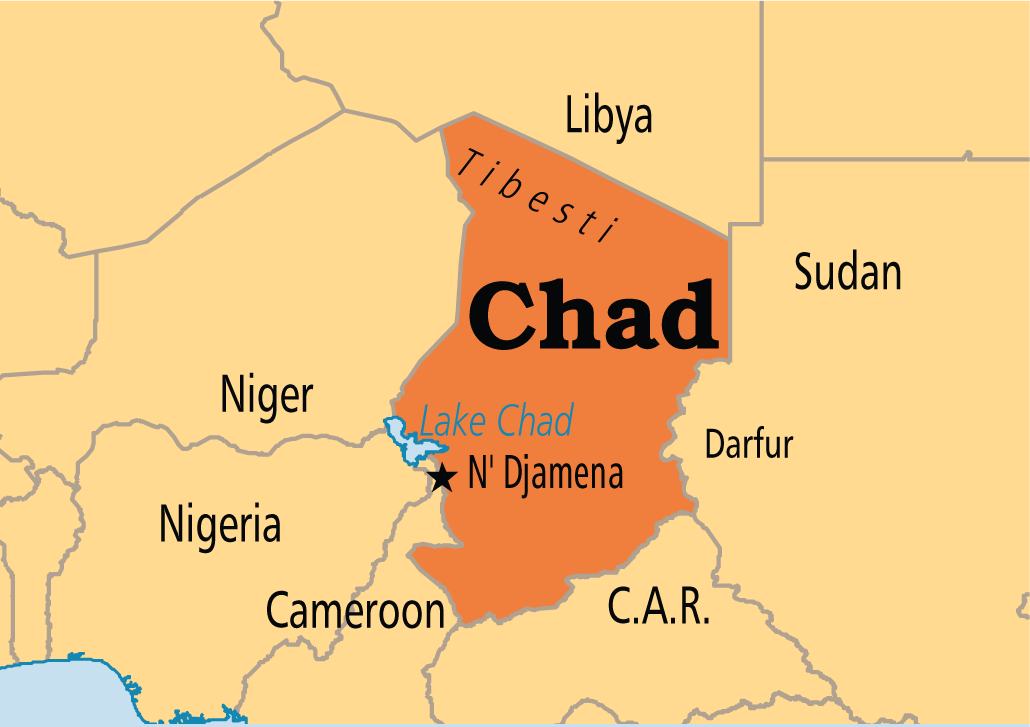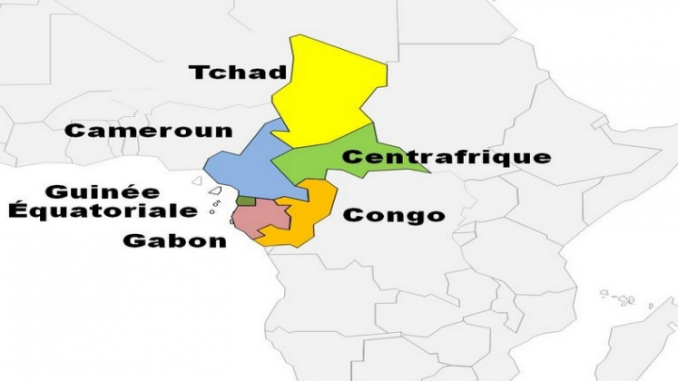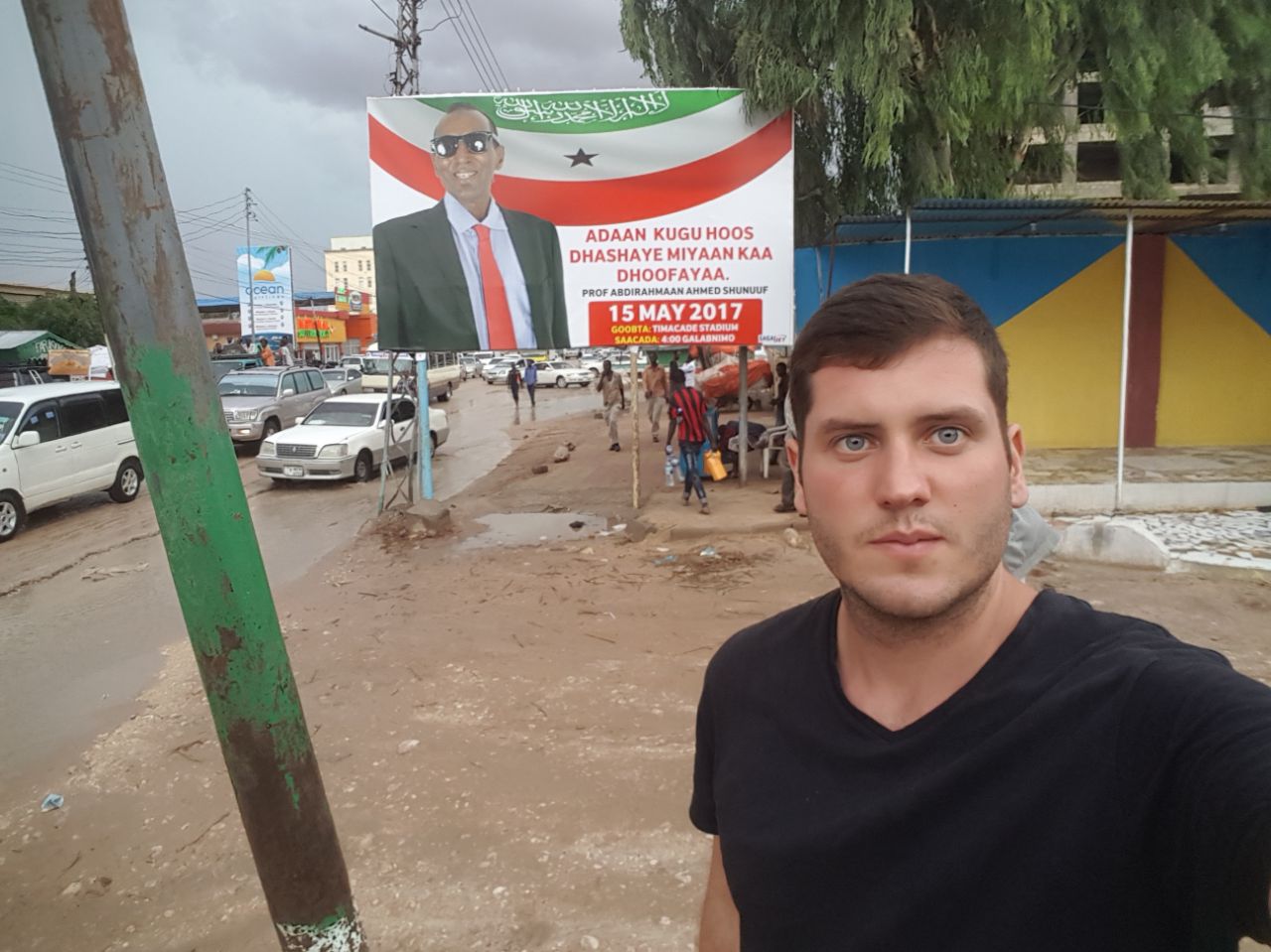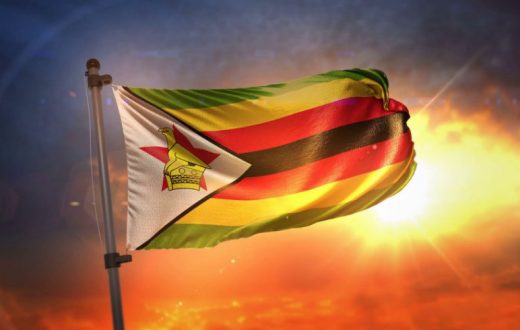Chad is holding a fund-raising round-table in Paris today; which will last for three days from 6 to 8 September 2017, to mobilize funds in order to obtain contributions for its newly adopted national development plan (NDP). The country adopts the plan on 7 July to last for the next five years. An extraordinary Council of Ministers adopted the plan for 2017-2021 and another medium-term strategy called “Chad that we want in 2030”.
The clock is ticking in the French capital right now, the countdown begins. Economic experts, advisers and executives from the Chadian Ministry of Economy are making the impossible appointments on the sly in Paris to convince the donors as the round table is due to take place from 6 to 8 September.
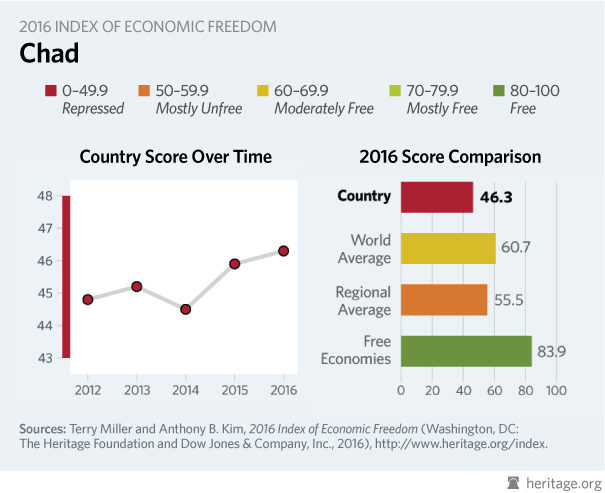
During this international mass; Chad hopes to mobilize its partners around more than 300 projects represented in four areas: developing a diversified and competitive economy, strengthening national unity and good governance, and improving the quality of life of the Chadian population.
“The round-table is an important conference for Chad”
In an exclusive interview with Éric Nadjibe, macro-economist and public finance expert told Young Diplomats in N’Djamena that the round-table is an “important conference” for Chad, in which donors could help Chad finance its national development plan for the period of 2017-2021. Therefore, with the support of its international partners; it is a great opportunity for Chad to get a better mobilization of external resources with bilateral and traditional multilateral partners and emerging partners for the financing of the NDP 2017-2021.
“If we are able to remember; the national plan for 2017-2021 comes from a strategic plan called “Vision 2030, Chad that we want.” For the government, this NDP is a great opportunity to give impetus to the country’s development process by aiming for emergence in 2030 through three National Development Plans (NDP 2017-2021, PND 2022-2026, PND 2027-2030). The plans are to be implemented and will aim to accelerate the structural transformation in the social, governance and rule of law, economic and environmental fields.” Nadjibe added.
The NDP seems to be amazing so far, but in which some Chadians affected by the financial crisis that crosses the country, wonder what it will change in the short term in their daily lives.
Nditson Ndirila, economic expert, argues that there are many investment opportunities, which will increase the economic activities in Chad, that, the NDP will create employment, especially for youth. Then the private sector that is a growth carrier will be able to express itself.
In this context, Nadjibe explains that the NDP 2017-2021 has the overall objective of laying the foundations for an emerging Chad. It is organized around the following themes:
- Work towards a peaceful, respected and committed Chad in its regional and international environment.
- To give an access opportunity for every citizen to water, health, housing, energy and mobility.
- Build a dynamic Chad, economically strong, and environmentally friendly.
According to some pro-government economists in N’djamena; the roundtable in Paris is an ideal opportunity for the Chadian government to sell its NDP, the overall cost of the plan is estimated to be CFAF 5. 538.23 billion (about 928 million USD), which can be financed at CFAF 618.49 billion by the Chadian government, 208, 86 CFA francs by the PTFs, 1,098.4 billion FCFA by the public sector, CFAF 531.03 billion by the PPP and a GAP of 2081.44 billion to be sought.
This conference will present the 89 bankable project files, including 13 public-private bankable partnerships and 21 private projects (while at the time of the presentation of the NDP 2013 -2015, no bankable project was presented).
Good governance and the rule of law
Nadjibe argues that during the roundtable in Paris, more than ten thematic notes will be presented in the areas of good governance and the rule of law, environment, infrastructure, security, humanitarian needs, economic diversification, demographic dividend, human capital, rural development and justice.
“In a time of economic downturn, large-scale investments provide infrastructure that can help steer the country out of poverty. I am optimistic of the Paris roundtable, but with few conservations in mind as well,” Ndirila told Young Diplomats in N’djamena.
Many Chadians seem to be unaware of the NDP; while many are increasingly willing to speak out about their economic difficulties, a sign of desperation in a country that stifles economic downfall. “We are facing a terrible economic crisis that needs quick solutions. Nothing seems to be working, and everything the state says isn’t to be trusted,” says one young taxi driver that I met earlier this week, at age 28.
Other Economists in the Chad’s capital N’Djamena argue that the government desperately needs the loan to ensure that Chad’s poorest people can afford to buy food and to prevent riots by hungry oppositions and citizens.
Despite the criticism, the roundtable seems to be very important and historical for the Chadian economy, Eric argues that it’s absolutely important because many important icons will be in Paris for this event, such as the Chadian President Idriss Deby Itno, the Chadian Prime Minister, Head of the Chadian government, surrounded by some members of the government and presidents of some major institutions, deputies, representatives of the PTFs, ambassadors of the brotherly and friendly countries of Chad. Representatives of civil society organizations, representatives of religious denominations and customary groups, representatives of political parties, NGOs, experts, intellectuals, constituencies, international stakeholders will also involve in the design and the implementation of the NDP 2017 2021.
“It is more than just a financial crisis”
Both of the economic experts; Mr. Nadjibe and Mr. Ndirila seem to agree that the economic crisis in Chad needs to be clarified. It is more than just a financial crisis due to a scarcity of financial resources, a crisis that was accentuated with the decline in oil prices. Given that Chad’s budgetary resources come from a natural resource – oil. Through this crisis; Chad knows a little what is called the “Dutch syndrome”, such disease that generally affects countries that are rich in natural resources.
However, and in the other hand, Nadjibe argued that it is unfair and very daring to say that only the Paris round table could solve the economic downturn that Chad is passing through. Beyond its cyclical character, it is a crisis that has its origins in the depths of the Chadian economy, little diversified and very dependent on the outside loans and aids. More reform and commitment must be combined to end this crisis in a sustainable way.
Furthermore, it should be noted that the round table is only one step in the search for solutions and resources to finance the NDP, also resulting from a strategic plan called “Chad vision 2030, Chad that we want”. This strategic plan, according to many analysts, is the result of national consultations at the lowest level, but also reflects the views of the Chadian governments, civil society organizations, intellectuals, technical and financial partners… according to Nadjibe; this plan would also be in line with the structural transformation of the economy, the African Union Agenda 2063, in line with the Sustainable Development Goals (SDGs) Emergence of the country in 2030.
“So we cannot say that the round table alone can solve the economic crisis. It is a step in mobilizing the necessary resources that Chad needs to finance its development. Such a conference may be held several times during a year or may be repeated annually until the end of the period covered by the project,” Nadjibe stressed.
It is well known that Chad’s economy depends heavily on oil and continues to be hit by the worldwide drop in its price and the security risks to production resulting from the activities of jihadist groups such as the Boko Haram sect. These continuing sources of instability have further weakened the country’s budgetary situation, its external position and short-term growth prospects. The financial costs of its regional peace and security commitment and care of refugees continue to weigh upon the public purse. The lessening of activity recorded in 2016 could therefore continue in 2017 and perhaps 2018, in particular because of a marked drop in activity in both the oil and non-oil sectors. Perhaps all these have pushed the country to choose Paris as the most suitable platform to present its NDP.
Nadjibe argued that choosing Paris as the venue for the conference is strategic. Paris is the crossroads of diplomacy, a hub for exchanges. It is also the first partner and ally of Chad. From Paris; it seems to be easy and closer to talking to all the countries of the European Union (Brussels is not far). It should also be pointed out that just after the Paris roundtable; there will be another roundtable conference with private sector partners organized by the Ministry of Commerce, this meeting will be held this time not in Paris but in Abu Dhabi in the United Arab Emirates around September 13, 2017 .It should also be noted that many other African countries (Francophone in particular) have adopted the same approach as Chad and have managed to raise enormous funds through Paris.
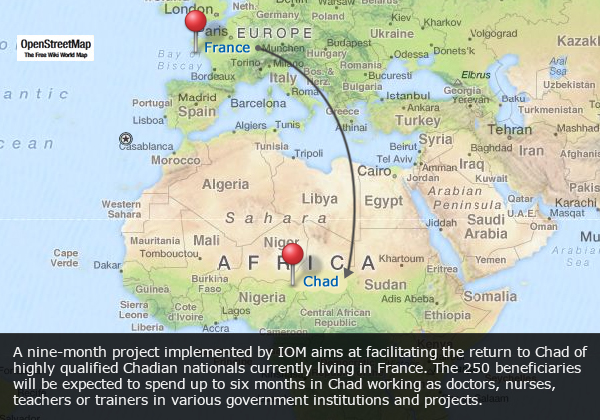
Meeting “Club de Paris “
Ndirila says that it is also possible and would be great to meet the renowned “Club de Paris”, a unique forum of exchange, a group of public creditors whose role is to find coordinated and lasting solutions to the difficulties of countries indebted and developing countries. The club will have the advantage of mobilizing more official development assistance (ODA) for Chad.
Nadjibe thinks that after France and the United Arab Emirates, other meetings can be envisaged at the continental level and even sub-regional to raise funds. As there are enormous possibilities in Chad as well and potentials for saving that are little or not organized and which could be mobilized through national consultations to finance this large-scale operation.
Analysts say that the NDPs are dashboards; instruments of action that each country puts in place to better follow the implementation of its strategy, usually the reflection of a dream of the best. As in the case of a company that is going to apply for credit to the bank that is required to submit project and valid guarantees. Based on this example; — states also must engage in such types of exercises and prove to what extent their projects are bankable and guaranteed. Hence, it is not because the outcome of the NDP 2013-2015 remains very mixed should no longer be elaborated. On the contrary, it seems obvious to advance and rectify the shooting by proposing solutions and innovating. Nor is it a question of copying of others, but rather of being in phase with one’s own realities.
“I think that Chad has its own realities, Chad has the potential natural resources and human capital; in which the country can be based on in order to progress. Now it is also up to the political authorities to really make use of the document (this PND 2017-2021), to use it validly, and to reduce its pride,” Nadjibe stressed.
Chad is at a crossroads
Ndirila and Nadjibe both believe that Chad is at a crossroads. Hence, they consider the Paris round-table and other upcoming conferences are great opportunities that could be won if all stakeholders in this NDP show ingenuity and national leap. “We must listen to the discordant voices that already criticize the project and incorporate their remarks now. The important thing is not the document itself, but how do we reassure our citizens and all skeptics. Because the skeptics must not veil their faces, there will always be voices even among the partners. But I think that the NDP 2017-2021 is full of enormous potential and commitment that could be used not only to reassure all skeptics but to help Chad in a true path of growth,” Nadjibe said.
He continued by saying that this implies a truly improved business climate, a considerable improvement in public finance management, in particular by seriously promoting results-based management at all levels of the Chadian public administration, genuinely empowering decentralized that the future benefits of the NDP flow at the level of the most deprived, a channeling of human resources for a better synergy of actions and finally the setting up of genuine control mechanisms.
Reports say that between 2003 and 2011, Chad achieved moderate but significant progress in poverty reduction, with the national poverty rate falling from 55% to 47%. However, with this current financial and economic crisis, poverty could increase. The absolute number of poor is projected to rise from 4.7 million to 6.3 million by 2019.
According to some Chadian analysts and economic experts including Ndirila; argue that this is the right moment for Chad to take serious and bold commitments, firm and determined. This is necessary for the country now, because the most difficult thing in terms of fund raising is not having them, but it is to reassure and guarantee fund providers of the security of their financial contributions and the future return of their investment.
“Investors are not children of hearts, charity providers or friends as we like to say, however, they are rather doing business, they are businessmen to whom one comes to sell a product, and we must not convince by all means but in a responsible and serious way, with its assets. It is up to our authorities to know how to sell this product which is “the NDP” in order to allow Chad to draw the best part. In addition, we must not make commitments that could not be honored and that could put pressure on our public finance strategy,” Nadjibe said.
Chad between fragility and ambitions
The roundtable in Paris does not seem to end up the economic crisis immediately as Chad depends heavily on the exploitation of limited natural resources. However, some experts argue that the roundtable may save Chad from the economic downfall if the country looks to diversify its sources of growth and income. It envisages implementing three successive national development plans, which will allow it to fall under the “emerging” category by 2030. Accordingly, industrialization is essential to this strategy, which will enable moving progressively into sectoral transformation and diversification. At the same time it will promote economic and social integration and greater capital accumulation thanks to the development of an entrepreneurial culture, in particular amongst women and young people. For this strategy to succeed the country will need to have considerable financial resources available, though these will be hard to assemble under present conditions.
For further information on this new plan:
http://www.plan-td.org/w3/index.php/general/69-vision-2030

